'Monty and Mabel' Adélie penguins monitored at Christmas
- Published
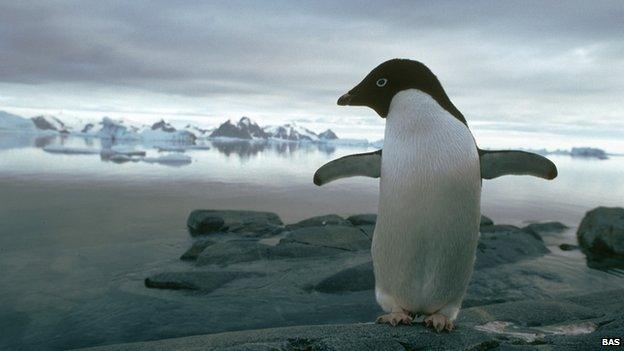
Adélie penguins are often said to resemble little men in dinner jackets
A Cambridge-based scientist is spending her Christmas monitoring real-life "Monty and Mabel" penguins - a species now well-known after featuring in a UK store's festive television advert.
Stacey Adlard, who works for the British Antarctic Survey in Cambridge, is spending five months monitoring Adélie penguins in the Antarctic.
The zoological field assistant hopes to discover why the species is thriving in some areas but in decline in others.
She is currently based on Signy Island.
Signy, in the South Orkney Islands, lies on a latitude of approximately 60°S. It is in the southern hemisphere where temperatures - in what is now midsummer - average between -4°C and +4°C.
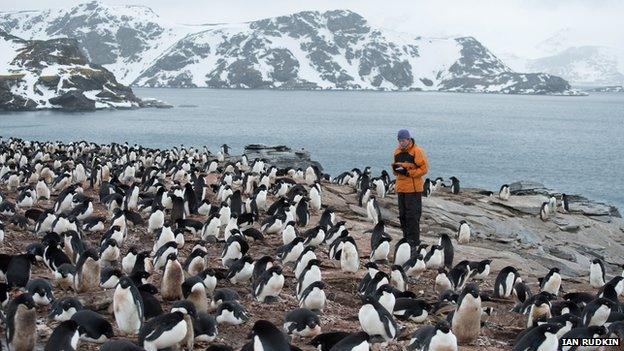
Stacey Adlard is monitoring the Adélie penguins during their breeding season
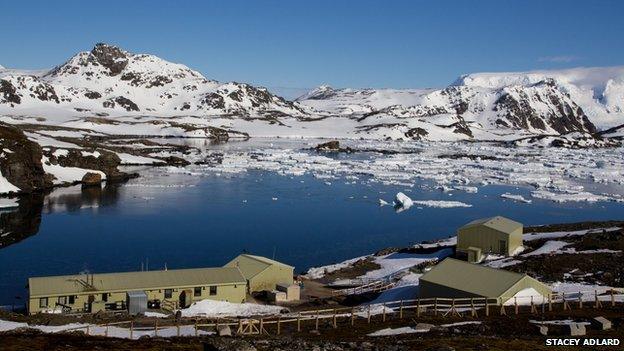
The Signy Island research centre caters for up to eight scientists and support staff
The Antarctic continent and surrounding islands are the main breeding grounds of the Adélie penguin, Pygoscelis adeliae.
Miss Adlard is part of a small team monitoring the success - or otherwise - of the current breeding season.
BAS research scientist Dr Phil Trathan, said there were about 3.79 million breeding pairs of Adélie on the continent.

Adélies - the future

Adélies are categorised as "near threatened, external" on the International Union for Conservation of Nature's Red List of Threatened Species
The global Adélie population is expected to decline at a "moderately rapid rate due to the effects of climate change", Dr Trathan says
Scientists from BirdLife International, who monitored the species in 2012, have "precautionarily" projected a population decline approaching 30% over the next three generations

"My role involves detailed monitoring of all species during their breeding cycle and includes counting, weighing, and identifying what they have been eating," said Miss Adlard.
"By collecting the same data each year, we can then look at the long-term trends for each type of penguin to see how well they are doing as a population and if they are struggling, to try to determine why."
Colleagues are "busy measuring the intensity of light reflected from penguin poo, as part of a project to try to identify and count penguins remotely using satellite photographs", she said.
.jpg)
Miss Adlard plans to take a break from counting penguins to enjoy a traditional lunch on Christmas Day
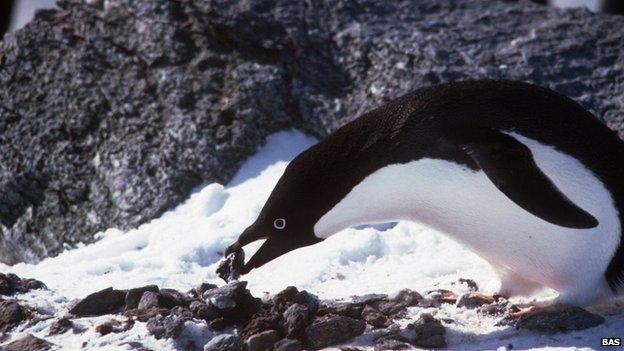
The species is considered "near threatened"
Work at the research station, which caters for eight staff, stops briefly on Christmas Day for a traditional turkey lunch.
All the food arrived with Miss Adlard on the BAS ship, the RRS James Clark Ross and has to last until the scientists return in April.
"There are only a few of us so we make the most of having our own Signy family Christmas," she said.
"We have fairy lights and a Christmas tree and lots of snow and penguins, all of which help us to get into the festive mood.
"Come Boxing Day, it's time to get back to work and go to see my penguins and wish them a merry Christmas."
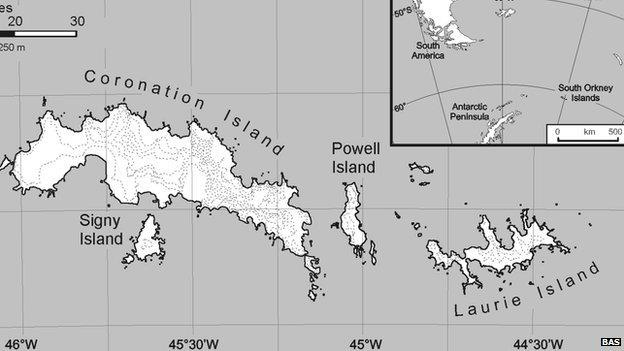
Signy Island is currently in midsummer
- Published6 November 2014
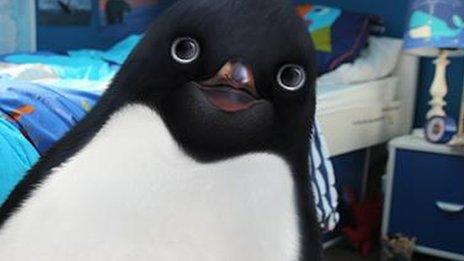
- Published22 August 2013
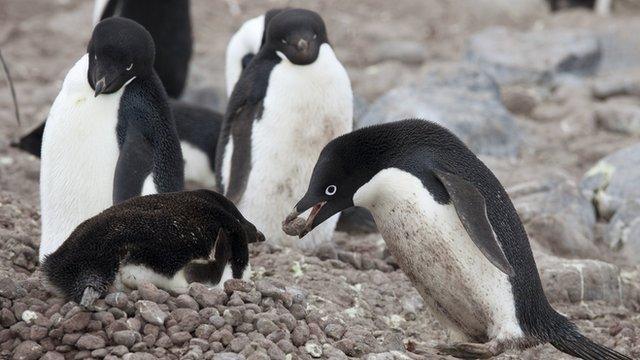
- Published21 May 2013
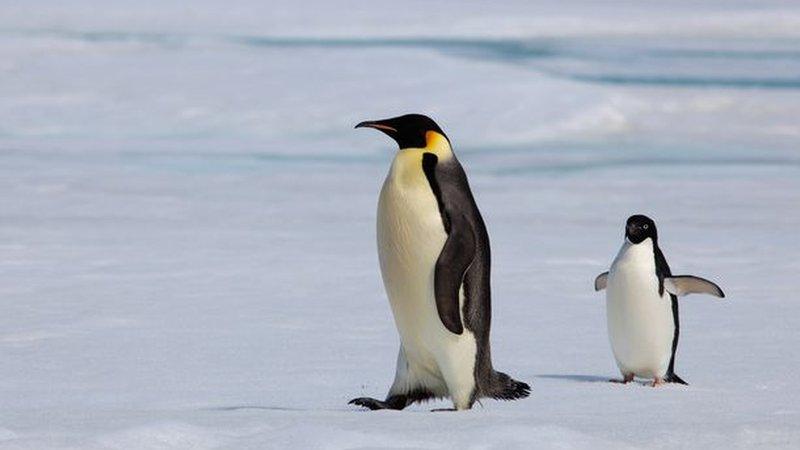
- Published1 May 2013
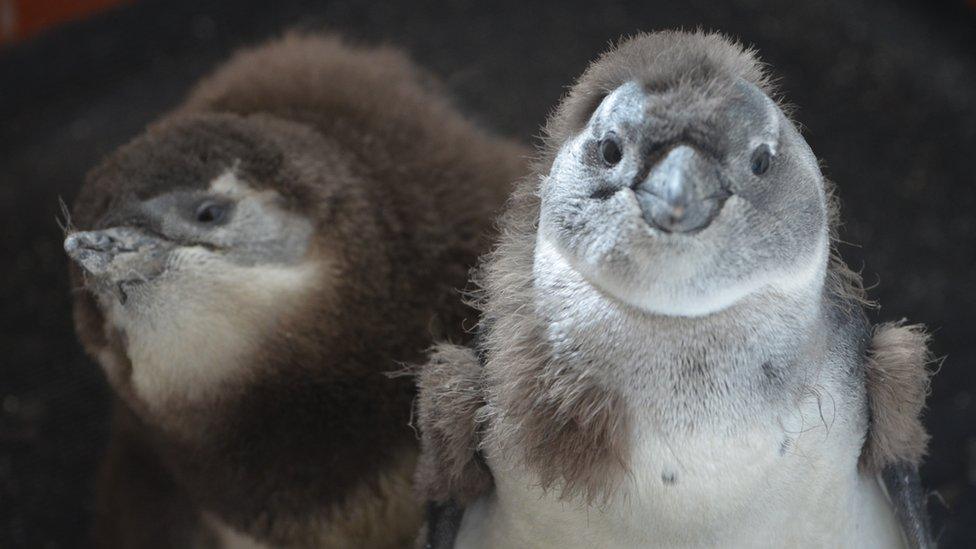
- Published12 April 2011